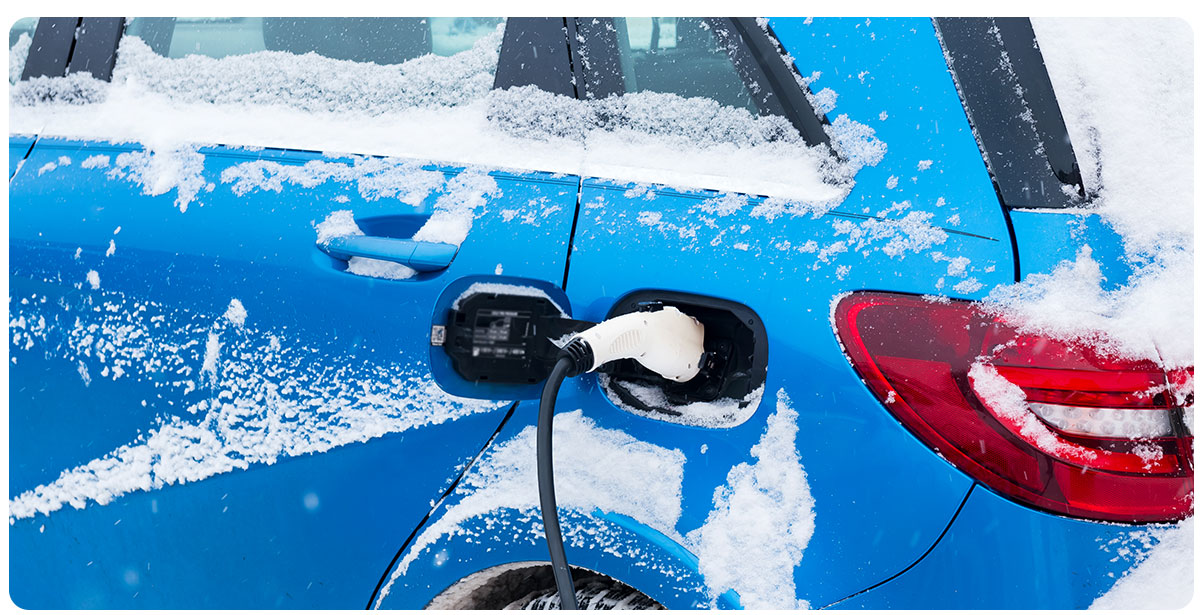
The hidden challenges of Quebec’s ambitious goal to sell 1.5 million electric vehicles by 2030
Quebec is undergoing an unprecedented green revolution! The provincial government has announced a series of ambitious measures to promote the adoption of electric vehicles and reduce greenhouse gas emissions. In fact, it has set a goal of selling 1.5 million electric vehicles by 2030, representing approximately 30% of all vehicles on the road in the province. This initiative is both bold and visionary, and promises to radically transform the automotive landscape in Quebec.
However, the stakes are high and raise many questions. Are electric vehicles really the ideal solution for Quebec users? What are the even more eco-friendly options that could soon be available to consumers? How does Tesla compare to established automotive brands in Quebec? These questions are at the heart of the future of the automotive industry in Quebec and require thorough analysis.
Quebec is the second most populous province in Canada with approximately 8.6 million inhabitants. However, despite its large area, much of Quebec’s territory remains sparsely populated and underdeveloped. The majority of the population is concentrated in a few large cities such as Montreal and Quebec City, as well as in the surrounding regions. The vast forested regions, lakes, rivers, and mountains that make up the rest of the territory are often difficult to access, which largely explains their underdevelopment compared to urban centers.

Chilling Obstacles: The Impact of Quebec’s Winter Climate on Electric Vehicle Performance and Adoption.
The harsh winter climate is also a major obstacle to the operation and development of these regions, with long periods of cold and snow that make activities more difficult.
The cold can complicate the charging of a battery in an electric car in several ways. First, when the temperature is very low, the battery loses efficiency, which means it can discharge more quickly than expected. In addition, the cold can cause a decrease in the battery’s capacity, which reduces its overall lifespan.
Furthermore, electric car batteries need to be maintained at a certain temperature to function effectively. If the car is left outside overnight in very cold temperatures, this can cause a decrease in the battery’s temperature, which can complicate the charging process. Very cold temperatures can also cause deterioration of battery components, further reducing the battery’s lifespan.
That is why it is recommended to park an electric car inside at night, especially during the harsh winter months in Quebec. This maintains the battery at an optimal temperature for efficient charging and long lifespan. However, it is important to note that even with indoor storage, electric car batteries can still degrade over time, meaning that replacement can be costly.

This reality may make the purchase of an electric car less attractive for some potential buyers in Quebec, who must deal with harsh and prolonged winters. However, there are measures that electric car owners can take to extend the life of their battery, such as regularly charging the battery and using a charger specifically designed for cold temperatures.
Contrasting Vehicle Usage Patterns between Urban and Rural Quebec
In Quebec, the diversity of vehicle users varies by region due to the vast territory and the presence of large, underdeveloped areas with limited access to electricity. In urban centers such as Montreal and Quebec City, there is a wide variety of vehicle users, including motorists, cyclists, pedestrians, and users of public transportation such as buses and trains. The presence of well-developed public transportation networks allows residents of these regions to easily get around and reduce their dependence on motorized vehicles.
On the other hand, in more remote regions such as rural and isolated areas, vehicle users are often more dependent on cars because public transportation options are often limited. Trucks and all-terrain vehicles are also common in these regions because they are better suited to the difficult conditions of certain types of terrain.
Furthermore, due to the vast size of the Quebec territory and the presence of large, underdeveloped areas with limited access to electricity, electric vehicles may be less practical in certain regions. In these areas, electric charging infrastructure is less widespread or accessible, making gasoline or diesel-powered vehicles still widely used.

Factors influencing vehicle choices in Quebec: Environmental, Economic, and Regional
In Quebec, the relationship between vehicle users and buyers and their needs, activities, and desires is complex and varies greatly by individual and region. The needs of vehicle users and buyers can be classified into several categories based on their activities, regular travel, or recreational activities such as camping or winter sports. Vehicle buyers may also be motivated by desires for luxury or power, choosing high-end or sports vehicles.
The types of vehicles purchased thus vary by region and the needs of each individual. In urban centers, buyers have diverse transportation needs, and vehicle choices are often influenced by environmental and cost considerations. Thus, electric vehicles and public transportation are becoming increasingly popular in these regions because they are considered more environmentally friendly and cost-effective.
On the other hand, in rural and remote regions, buyers generally need more robust and versatile vehicles to cope with the difficult conditions of the road and climate. Therefore, all-terrain vehicles and trucks are more popular in these regions.
In summary, the relationship between vehicle users and buyers and their needs, activities, and desires is complex and varies by individual and region. Vehicle choices can be influenced by environmental and cost considerations in urban centers, while the need for robustness and versatility is more important in rural and remote regions.
Tesla’s Customer Service Conundrum in Quebec: Can They Rise to the Challenge?
The physical presence of numerous dealerships is a significant asset for well-established automotive brands in Quebec. Customers need to be able to easily visit a dealership for vehicle purchases, regular maintenance, or repairs. Brands with a strong presence in Quebec, therefore, have an advantage in terms of convenience and customer service.
In contrast, Tesla only has a limited number of sales and service points in Quebec (currently 3), which can limit accessibility for customers. This may be a barrier for some customers looking for a more convenient and accessible purchasing and service experience.
While acquiring new customers is important for the growth of the automotive industry, retaining existing customers is equally crucial. Automotive brands that have built long-term relationships with their customers by providing quality after-sales services and earning their trust have the advantage of customer loyalty. Customer preferences for brands and dealerships also play a key role in their decision to remain loyal to a brand. Therefore, automotive brands must not only focus their efforts on acquiring new customers but also invest in loyalty programs and quality services to maintain their existing customer base.
Despite Tesla’s relative novelty in the market, the brand must prove its expertise in after-sales service and customer loyalty. This is a real challenge, however, a private source who purchased a Tesla model two years ago reports never having been contacted for maintenance or tire changes. This situation indicates that the buyer must contact Tesla for maintenance or find a garage that accepts this type of vehicle.
In conclusion, while Tesla offers innovative electric cars, its lack of physical presence in Quebec could limit its ability to offer a convenient purchasing and service experience for customers. Well-established automotive brands have an advantage in terms of convenience and customer service due to their significant physical presence and can maintain a relationship of trust with their customers. Therefore, it is possible that Tesla may encounter difficulties in retaining customers against these established brands.

Batteries: An Environmental Double-Edged Sword?
Batteries are considered more environmentally friendly than gas or diesel in the context of electric cars, as they do not produce direct greenhouse gas emissions when used to power an electric car. However, the production of batteries themselves can have a significant environmental impact due to the extraction of raw materials and energy consumption required for their production. Additionally, the electricity production used to recharge batteries can come from polluting sources such as coal-fired power plants, reducing the environmental advantage of electric cars.
The future of the automotive industry is constantly evolving, and brands are competing with ingenuity to find alternatives to internal combustion engines. Nissan, Toyota, Hyundai, BMW, Audi, Mercedes-Benz, Ford, Chevrolet, Honda, Volkswagen, and many others are currently working on innovative technologies to offer more environmentally friendly cars. Indeed, reducing greenhouse gas emissions has become a major issue in the automotive industry, and more and more brands are turning to plug-in hybrid engines or hydrogen engines. These alternative technologies offer a solution to reduce greenhouse gas emissions while maintaining high performance. Additionally, some brands have launched ambitious research programs to develop new technologies to revolutionize the automotive industry. With all these advances, it is clear that the future of cars is promising and that car brands are committed to creating a cleaner and more sustainable world for all.
Due to Quebec’s vast territories, specific needs, and difficult weather conditions, predictions suggest that hybrid or hydrogen engine vehicles are the most logical option for the future of Quebec users. Hybrid vehicles combine both an electric motor and a gasoline or diesel engine, offering the advantages of both types of engines. This combination makes them particularly suitable for long distances traveled in vast territories, where it may be difficult to find electric charging stations or fueling stations.
In conclusion, Quebec’s ambitious goal of selling 1.5 million electric vehicles by 2030 poses complex challenges that cannot be ignored. The harsh weather conditions and vast Quebec territories can make purchasing an electric vehicle less attractive for some potential buyers. Additionally, electric vehicles may be less practical in some regions where electric charging infrastructure is less widespread or accessible. Vehicle choices are influenced by environmental and cost considerations in urban centers, while the needs for ruggedness and versatility are more important in rural and remote areas.
Tesla, although offering innovative electric cars, may face difficulties due to its lack of physical presence in Quebec, which could limit its ability to offer a practical purchasing and service experience for customers. Established automobile brands have an advantage in terms of convenience and customer service through their significant physical presence and can maintain a trusted relationship with their customers. Therefore, it is possible that Tesla may face difficulties in retaining customers compared to these established brands.
Finally, given Quebec’s vast territories, specific needs, and harsh weather conditions, forecasts suggest that hybrid or hydrogen fuel cell vehicles are the most logical option for future Quebec users. Hybrid vehicles combine both an electric motor and a gasoline or diesel engine, thus offering the advantages of both types of engines. This combination makes them particularly suitable for long distances traveled over vast territories, where it may be difficult to find electric charging or fueling stations. In summary, vehicle choices in Quebec are complex and vary depending on individuals and regions, and it is essential for governments, automakers, and vehicle owners to work together to meet the needs and challenges of the future of mobility in Quebec.
